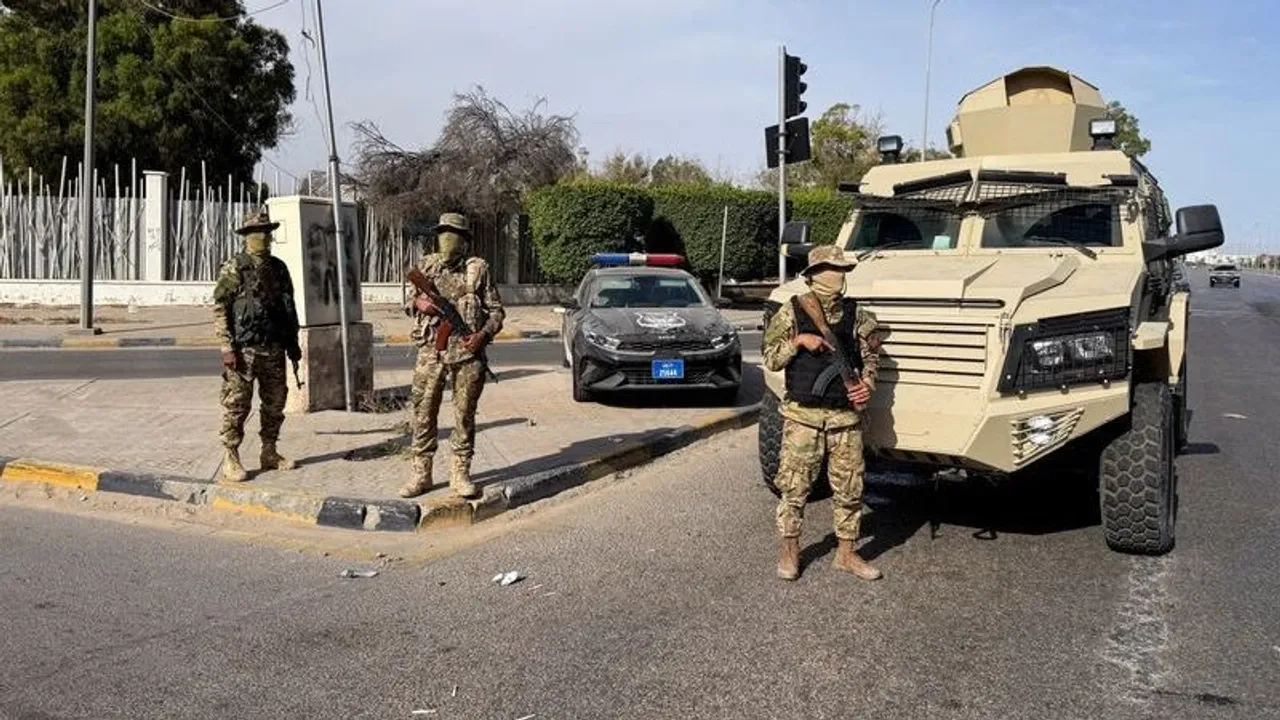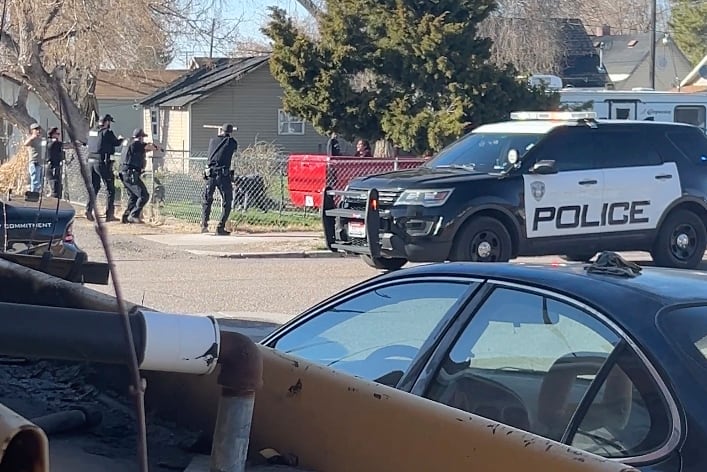In recent weeks, the political climate in the Middle East has once again drawn global attention. This time, the spotlight falls on Egypt’s capital, Cairo, where the United Kingdom has temporarily shut down its embassy. The decision came shortly after Egyptian authorities removed long-standing security barriers that had surrounded the diplomatic compound for years. Against the backdrop of heightened pro-Palestinian demonstrations, regional instability, and shifting alliances, this move has sparked questions about the safety of foreign diplomats, Egypt’s domestic security strategy, and the ripple effects on international relations.
- Egypt’s Security Barriers and Their Symbolism
- The Rise of Pro-Palestinian Tensions in Egypt
- Why the U.K. Decided to Shut Its Embassy
- Egypt’s Perspective: Balancing Security and Sovereignty
- Impact on U.K.-Egypt Relations
- Historical Parallels: Embassies and Regional Unrest
- Global Reactions and Broader Implications
- Future Outlook: What Comes Next
- FAQs
- Why did the U.K. shut down its embassy in Cairo?
- Is the closure of the British Embassy permanent?
- How do pro-Palestinian protests affect embassies in Egypt?
- What does this mean for U.K.-Egypt relations?
- Could other Western embassies in Cairo follow suit?
- Conclusion
The U.K.’s move is not merely an administrative decision—it represents a deeper layer of geopolitical anxieties. At its core, the embassy’s closure is a signal of caution, underscoring the challenges that Western governments face in balancing diplomatic presence with safety concerns in politically charged regions. To fully understand the implications, it is essential to explore Egypt’s changing security environment, the role of pro-Palestinian sentiments in the region, and how this affects broader Western-Arab relations.
Egypt’s Security Barriers and Their Symbolism
For years, Cairo’s downtown area has been defined not only by its bustling streets but also by the concrete barriers surrounding foreign embassies. The U.K. Embassy, in particular, was heavily fortified following the Arab Spring in 2011 and subsequent terrorist incidents targeting diplomatic and government facilities. These barriers, while disruptive to city life, served as a powerful symbol of the fragile balance between foreign presence and local unrest.
The decision by Egyptian authorities to remove these barriers was initially seen as a step toward restoring a sense of normalcy. It suggested that the government wanted to project confidence in its ability to maintain internal security without relying on overt displays of militarization. Yet, for many foreign missions, including the British Embassy, the removal of these barriers has raised alarms rather than relief.
Diplomatic security experts argue that the timing is particularly sensitive. With pro-Palestinian protests gaining intensity across the Middle East, and Egypt positioned as a key broker in Gaza negotiations, any shift in protective measures could be interpreted as a risky gamble. “Embassies are always symbolic targets,” explained a former British diplomat. “The barriers were more than physical; they were psychological reassurance for staff and a deterrent for would-be attackers.”
The Rise of Pro-Palestinian Tensions in Egypt
Egypt has historically played a pivotal role in the Palestinian issue, serving as a mediator between Israel, Hamas, and international actors. The recent escalation in Gaza has reignited widespread pro-Palestinian demonstrations across Cairo and other Egyptian cities. These protests, fueled by anger at Western policies perceived as pro-Israel, have created an atmosphere of heightened sensitivity around foreign embassies.
The British Embassy, in particular, has been viewed as a potential flashpoint due to the U.K.’s foreign policy alignment with the United States and its longstanding support for Israel’s right to self-defense. Protesters have often gathered near foreign missions to voice their anger, making embassies high-risk zones during times of regional conflict.
According to local media reports, the demonstrations in Egypt have grown in scale and frequency. Thousands have taken to the streets, chanting slogans and demanding stronger action from Cairo against Israel. Social media has amplified these sentiments, with viral videos showing large crowds waving Palestinian flags and calling for justice. In such an environment, even small lapses in security could have dangerous consequences for diplomats and staff.
Why the U.K. Decided to Shut Its Embassy
The closure of the British Embassy in Cairo was not a decision taken lightly. Diplomatic closures are rare and usually occur under circumstances of imminent threat. In this case, the removal of the barriers, combined with the surge of pro-Palestinian protests, created a risk environment that London deemed unacceptable.
British officials have emphasized that the shutdown is temporary, describing it as a “precautionary measure.” However, analysts believe it reflects deeper anxieties about Egypt’s ability to maintain control in the face of rising regional tensions. With Cairo’s central role in mediating between Israel and Gaza factions, the city is both diplomatically significant and politically volatile.
Furthermore, intelligence assessments likely played a role. The U.K. has invested heavily in monitoring extremist groups in North Africa and the Middle East, many of which have historically targeted Western interests. By shutting down its embassy, London is signaling its unwillingness to take unnecessary risks, even at the cost of diplomatic inconvenience.
Egypt’s Perspective: Balancing Security and Sovereignty
From Cairo’s viewpoint, the removal of barriers around embassies reflects a broader effort to restore public order and reclaim sovereignty over its urban spaces. For years, Egyptians have complained about the way foreign missions disrupted traffic and daily life with their fortified zones. The government’s decision could thus be seen as a gesture toward its citizens, an attempt to signal stability and normalcy.
However, critics argue that the move was premature. Egypt’s security apparatus is already stretched thin, grappling with insurgencies in the Sinai Peninsula and domestic unrest. Removing barriers may project confidence, but it also exposes vulnerabilities at a time when regional volatility is at its peak.
Egyptian officials maintain that they remain committed to protecting foreign missions. Yet, the tension between appearing strong domestically and ensuring the safety of diplomats has become more visible than ever.
Impact on U.K.-Egypt Relations
The embassy shutdown has introduced a new wrinkle into U.K.-Egypt relations. On one hand, London has reiterated its trust in Cairo’s ability to maintain security. On the other, the very act of closure could be interpreted as a lack of confidence in Egypt’s capacity to protect foreign missions.
This diplomatic balancing act is delicate. Egypt remains a crucial partner for the U.K. in counterterrorism cooperation, regional diplomacy, and economic ties. Yet, moments like this test the resilience of such partnerships. Analysts suggest that while the embassy’s closure is temporary, it could leave lasting impressions on both sides about trust and security coordination.
Trade and investment could also be indirectly affected. British businesses operating in Egypt may feel uneasy about the embassy’s shutdown, questioning whether the risks of operating in Cairo are rising. In turn, Egypt could face challenges in reassuring investors and partners of its stability.
Historical Parallels: Embassies and Regional Unrest
This is not the first time that embassies in Cairo have faced closures or heightened security. In 2011, during the height of the Arab Spring, several embassies reduced operations amid fears of mob attacks and government collapse. Similarly, during past flare-ups in the Israel-Palestine conflict, foreign missions have often been placed on high alert.
Globally, embassies have long served as barometers of political stability. From the U.S. Embassy attack in Benghazi to the storming of diplomatic compounds in Tehran, history shows that missions often become flashpoints during times of political unrest. The U.K.’s decision in Cairo fits into this larger narrative, reminding us that diplomacy does not exist in a vacuum but is deeply intertwined with local and regional politics.
Global Reactions and Broader Implications
The temporary shutdown of the U.K. Embassy has been closely watched by other Western nations. Some European diplomats in Cairo have reportedly expressed similar concerns, with discussions underway about whether to increase security or reconsider operations. The United States, France, and Germany are all carefully monitoring the situation.
The broader implication is clear: as pro-Palestinian protests intensify across the Arab world, Western embassies may face increasing scrutiny and risk. Each government will need to balance the symbolic importance of maintaining a presence with the practical realities of protecting its staff.
Moreover, the embassy’s closure highlights a growing divide between Western and Middle Eastern public opinion. While Western governments continue to back Israel, Arab populations remain deeply supportive of the Palestinian cause. This disconnect fuels tensions around foreign missions, making them both symbolic and vulnerable.
Future Outlook: What Comes Next
Looking ahead, several scenarios could unfold. The British Embassy is likely to reopen once security measures are reassessed and additional protective protocols are put in place. However, the larger issue—how foreign missions operate in volatile regions—remains unresolved.
Egypt may need to reconsider its strategy of removing barriers. While the move was meant to signal stability, it has exposed foreign missions to heightened risks. A compromise may emerge, such as implementing less intrusive but equally effective security measures.
For the U.K., the decision underscores the need for adaptive diplomacy. As geopolitical tensions rise, embassies may increasingly rely on flexible models—shifting staff, rotating operations, and using technology to maintain functions without putting people at unnecessary risk.
FAQs
Why did the U.K. shut down its embassy in Cairo?
The U.K. shut down its Cairo embassy as a precautionary measure after Egyptian authorities removed long-standing security barriers around the compound. Rising pro-Palestinian protests added to the concerns, making the environment too risky for continued operations.
Is the closure of the British Embassy permanent?
No, officials have clarified that the closure is temporary. The embassy is expected to reopen once adequate security reassurances and protective measures are in place.
How do pro-Palestinian protests affect embassies in Egypt?
Pro-Palestinian protests in Egypt often target Western policies, especially those perceived as supportive of Israel. Foreign embassies, as symbols of Western presence, become high-risk areas during these demonstrations.
What does this mean for U.K.-Egypt relations?
While the closure reflects caution, it could be interpreted as a sign of distrust in Egypt’s ability to protect foreign missions. However, both sides have stressed the temporary nature of the shutdown, suggesting that long-term relations are unlikely to suffer major damage.
Could other Western embassies in Cairo follow suit?
Yes, it is possible. Several European and Western diplomats have raised concerns, and depending on how tensions evolve, other embassies might adopt stricter security protocols or consider temporary closures.
Conclusion
The U.K.’s decision to shut down its Cairo embassy amid the removal of security barriers and surging pro-Palestinian tensions is a telling reflection of the fragile balance between diplomacy and security in the Middle East. What appears at first as a temporary administrative move is, in reality, a microcosm of larger global dynamics: Western powers navigating an increasingly volatile region, Egypt balancing domestic sovereignty with international responsibility, and the Palestinian issue continuing to ignite passions across the Arab world.
Ultimately, the embassy’s closure is not just about one building in Cairo—it is about the intersection of global politics, public anger, and the ever-present need to protect lives in an unpredictable world. As the situation evolves, the decisions taken today will shape the confidence of foreign missions in Egypt for years to come.





